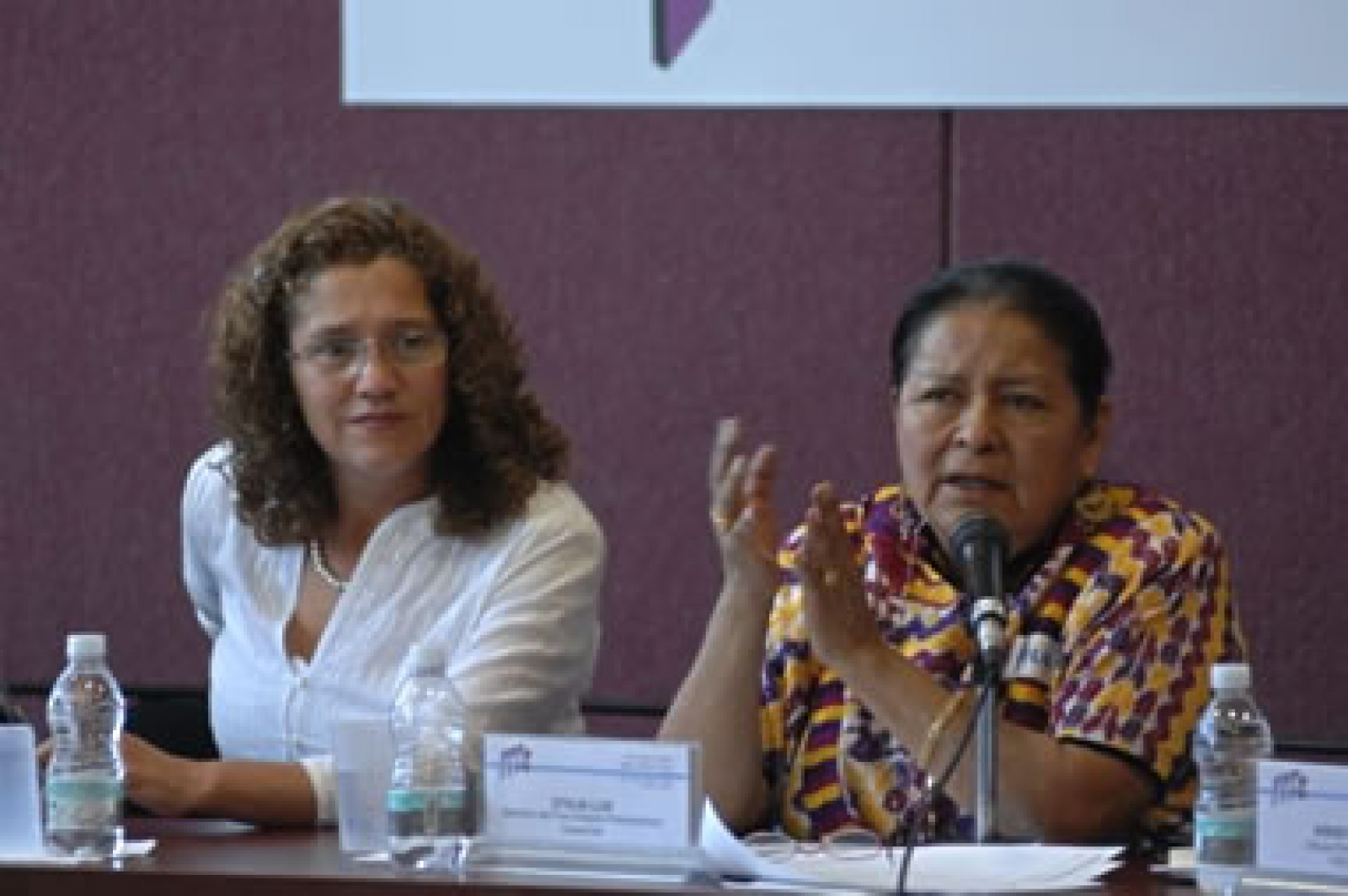
SHARE
Since the early 1990s, women in Latin America have significantly increased their political participation and successes. But while the number of women legislators has increased, advances have not been uniform across countries and women are continuing to seek more recognition of their interests. In some countries, women legislators have formed committees on gender; in others, more informal groups have been created to address specific issues. But the strength and effectiveness of these groups differ from country to country.
To help move their agenda forward, senior women legislators from seven countries gathered in Mexico City in February 2009 to exchange information about best practices and lessons learned.
“If we do not design concrete strategies for our work,” said Uruguay Senator Monica Xavier, “we could not advocate effectively, even with a great agenda and a higher number of female legislators.”
The senators and deputies – from Bolivia, Colombia, El Salvador, Guatemala, México, Peru and Uruguay – participated in a series of panel discussions that addressed challenges faced by women working in parliaments and how to increase women’s participation in public life. The group included presidents of gender commissions, heads of parliamentary caucuses, former ministers and recently-elected legislators.
The gathering, “Women Working Together: Promoting Gender Perspective in the Legislative Agenda,” was organized by NDI with the International Institute for Democracy and Electoral Assistance (IDEA) and the Mexican Chamber of Deputies. It was held Feb. 26 to 28.
Among the challenges identified by the group were the lack of teamwork among women legislators both within party caucuses and across party linesand problems created when party agendas compete with women’s priorities. Another challenge was establishing collaborative relationships with civil society groups.
After three days of discussion, the women legislators concluded that:
-
Women participating in commissions and/or caucuses should do a better job of informing citizens about their work and achievements, and should use the media more effectively.
-
Women should establish a common agenda with specific strategies to carry it out.
-
Women parliamentarians should create a regional network that would encourage stronger relationships among the region’s women’s caucuses and commissions.
-
Support from international organizations is a key element to facilitating exchanges between women legislators and women’s commissions, and caucuses should seek that support.
-
Participants should share information across the region on women’s legislation, such as preventing violence against women, so best practices can be identified and exchanged.
The regional meeting sparked activities in the individual countries after participants returned home. The delegation from Guatemala, for example, decided to create its own national caucus.
The regional meeting also included a two-hour advanced training program on consensus building and a presentation on iKNOW Politics, an online portal through which women in politics network and share information, knowledge and expertise. The portal was launched in 2007 by NDI in partnership with the International IDEA, the Inter-Parliamentary Union, the United Nations Development Programme and the United Nations Development Fund for Women.
The program is funded by the National Endowment for Democracy.
Pictured above: Participants in the recent NDI gathering of women in Latin American parliaments.
–
Published on April 3, 2009


